
Eagle's Nest: A View from the Top of the World
Eagle's Nest, or Kehlsteinhaus, is perched high in the Bavarian Alps in Germany. Originally built as a teahouse for Adolf Hitler, it now serves as a historical site and a popular tourist destination. The structure offers breathtaking views of the surrounding mountains and valleys, making it a must-visit for nature lovers and history enthusiasts alike. Visitors can reach Eagle's Nest via a scenic bus ride followed by an elevator ride through the mountain. Once at the top, the panoramic views are unparalleled, offering a glimpse of the beauty of the Bavarian Alps. The site also houses a small museum that provides insight into its historical significance, adding an educational aspect to the visit. The surrounding area is perfect for hiking and exploring, with well-marked trails that cater to both novice and experienced hikers. The Kehlsteinhaus restaurant offers a chance to relax and enjoy local Bavarian cuisine while taking in the stunning vistas. Whether you're interested in history, nature, or simply seeking a tranquil escape, Eagle's Nest provides a unique and memorable experience.
Local tips in Eagle's Nest
- Arrive early to avoid crowds, especially during peak tourist season.
- Bring a jacket, as temperatures can be cooler at higher altitudes.
- Consider hiking one of the nearby trails for an extended visit.
- Check the weather forecast before planning your trip, as visibility can be affected by fog.
- Don't forget to visit the small museum to understand the historical context of the site.
Eagle's Nest: A View from the Top of the World
Eagle's Nest, or Kehlsteinhaus, is perched high in the Bavarian Alps in Germany. Originally built as a teahouse for Adolf Hitler, it now serves as a historical site and a popular tourist destination. The structure offers breathtaking views of the surrounding mountains and valleys, making it a must-visit for nature lovers and history enthusiasts alike. Visitors can reach Eagle's Nest via a scenic bus ride followed by an elevator ride through the mountain. Once at the top, the panoramic views are unparalleled, offering a glimpse of the beauty of the Bavarian Alps. The site also houses a small museum that provides insight into its historical significance, adding an educational aspect to the visit. The surrounding area is perfect for hiking and exploring, with well-marked trails that cater to both novice and experienced hikers. The Kehlsteinhaus restaurant offers a chance to relax and enjoy local Bavarian cuisine while taking in the stunning vistas. Whether you're interested in history, nature, or simply seeking a tranquil escape, Eagle's Nest provides a unique and memorable experience.
When is the best time to go to Eagle's Nest?
Iconic landmarks you can’t miss
The Eagle's Nest
Ascend to the Eagle's Nest for breathtaking alpine views and a chilling journey into WWII history, exploring Hitler's mountaintop retreat and its dark legacy in the Bavarian Alps.

Eagles Nest Historical Tours
Discover the Eagle's Nest: A historic WWII site offering panoramic alpine views near Berchtesgaden, blending stunning scenery with a chilling glimpse into the past.
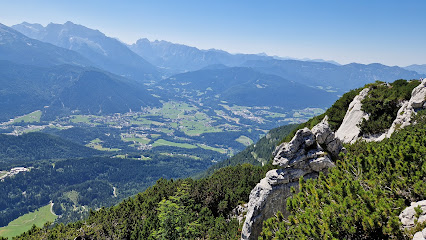
Eagle Fountain
Discover the iconic Eagle Fountain in Berchtesgaden, a historical landmark on Maximilianstraße, embodying Bavarian charm and artistry amidst stunning Alpine scenery and rich history.
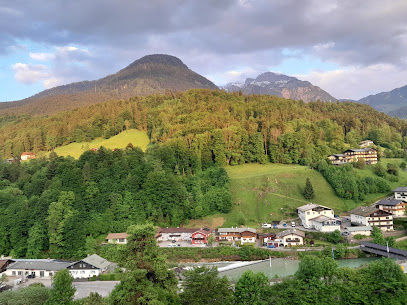
Unmissable attractions to see
Nationalpark Berchtesgaden
Explore Nationalpark Berchtesgaden: A breathtaking Bavarian natural wonder with stunning landscapes, crystal-clear lakes, and endless outdoor adventures.
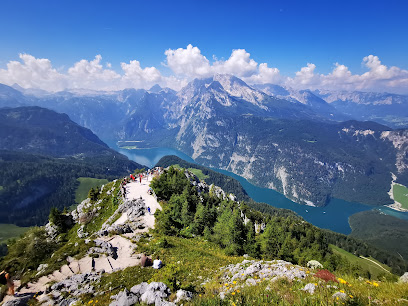
Rossfeld Panorama Strasse
Explore the stunning Rossfeld Panorama Strasse for breathtaking views and unforgettable hiking experiences in the Bavarian Alps.
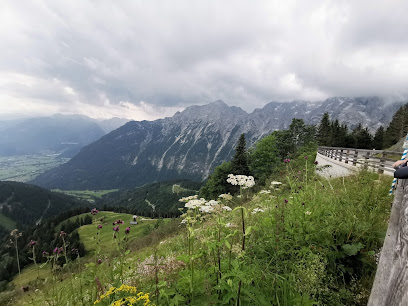
Almbachklamm
Experience the breathtaking beauty of Almbachklamm, a captivating gorge in Marktschellenberg, perfect for hiking and nature lovers.
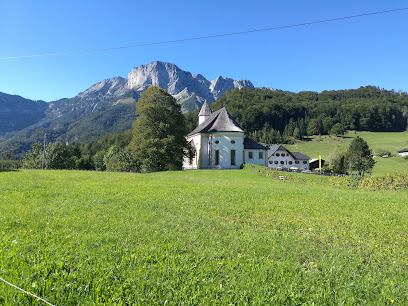
Wimbachklamm
Discover the breathtaking beauty of Wimbachklamm, a stunning gorge in Ramsau bei Berchtesgaden, perfect for nature lovers and adventure seekers.
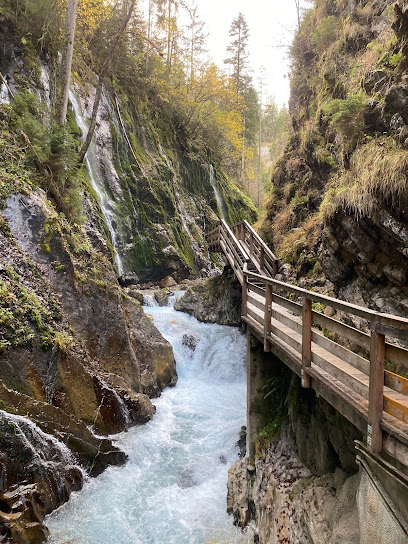
Malerwinkel
Experience the breathtaking views of Malerwinkel, a scenic observation deck in Bavaria surrounded by the stunning landscapes of Königsee and the national forest.
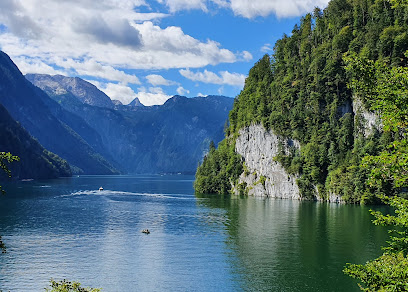
Salzburg Museum
Experience the rich artistic heritage of Salzburg at the Salzburg Museum, showcasing history, culture, and the genius of Mozart in one unforgettable journey.
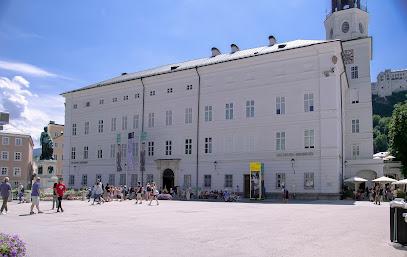
Eiskapelle
Discover Eiskapelle, a stunning ice cave and hiking area near Schönau am Königssee, where nature's beauty meets adventure in the Bavarian Alps.
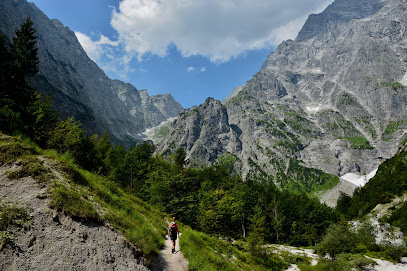
Sporer Likör- & Punschmanufaktur
Explore Sporer Likör- & Punschmanufaktur in Salzburg for an authentic taste of handcrafted liqueurs and traditional Austrian punch.
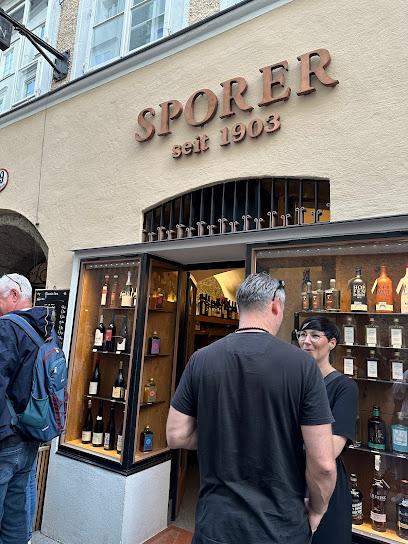
Röthbach Waterfall
Experience the breathtaking beauty of Röthbach Waterfall, Germany's tallest waterfall, nestled in the stunning Berchtesgaden National Park.
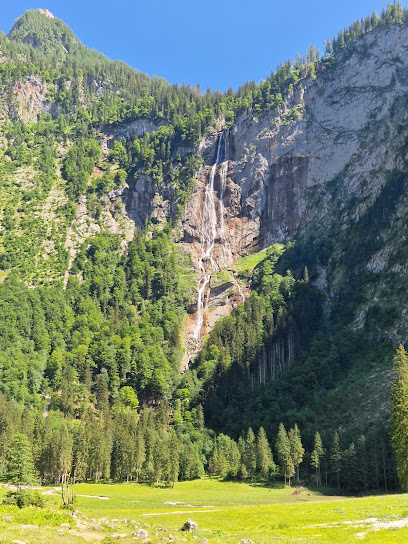
Kirchleitn Kapelle
Discover the tranquil Kirchleitn Kapelle in Berchtesgaden, a charming chapel set against the stunning backdrop of the Bavarian Alps.
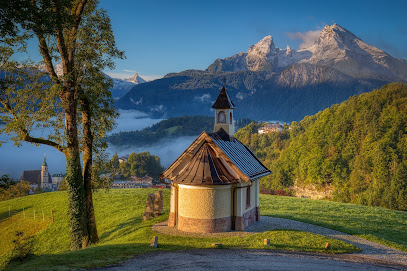
Theresienklause
Explore Theresienklause, a historical gem in the Bavarian Alps, where nature and culture unite to offer an unforgettable experience for every traveler.
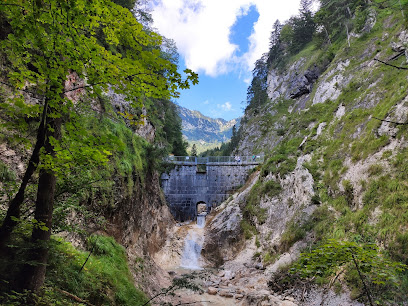
Sulzer Wasserfall
Experience the enchanting beauty of Sulzer Wasserfall in Marktschellenberg, where nature’s splendor awaits amidst serene trails and breathtaking views.
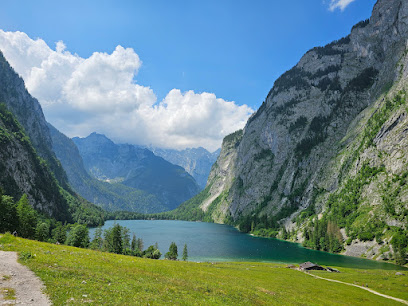
Grünstein
Experience the breathtaking beauty and outdoor adventures at Grünstein in Schönau am Königssee, a must-visit Bavarian gem.
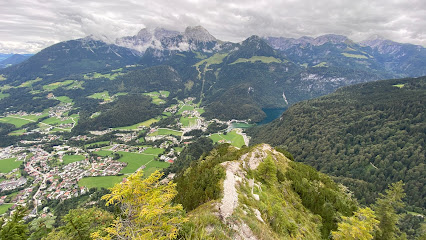
Marxenhöhe
Experience the breathtaking views and serene beauty at Marxenhöhe, the ultimate observation deck in Berchtesgaden, Germany.
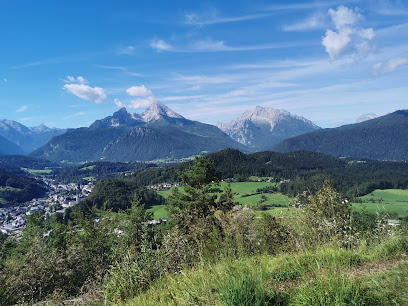
Schrainbach Wasserfall
Experience the serene beauty of Schrainbach Wasserfall, a scenic gem in Schönau am Königssee, perfect for nature lovers and adventurers alike.
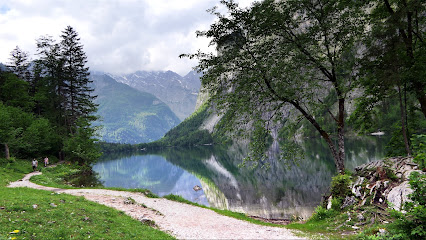
Essential places to dine
Gasthof Neuhaus
Discover authentic Bavarian cuisine at Gasthof Neuhaus in Berchtesgaden – where every dish tells a story amidst breathtaking alpine views.
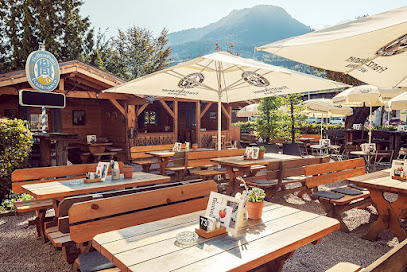
Gaststätte Echostüberl
Experience authentic Bavarian cuisine at Gaststätte Echostüberl in Schönau am Königssee - where tradition meets flavor.
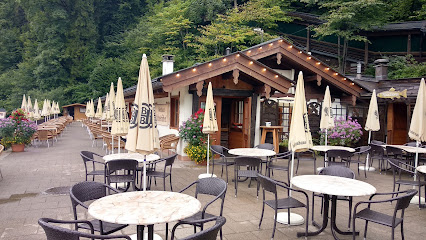
Goldener Bär
Discover authentic Bavarian flavors at Goldener Bär in Berchtesgaden – where tradition meets taste in every dish.
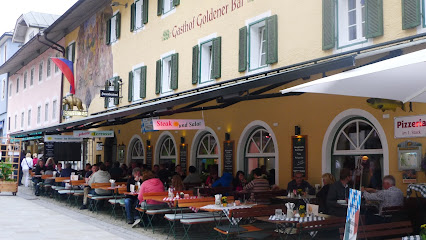
Bräustüberl
Savor authentic Bavarian flavors at Bräustüberl in Berchtesgaden – where tradition meets taste amidst stunning alpine views.
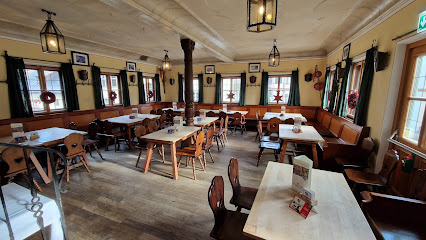
Jenner-Kaser, Franz Graßl
Experience authentic Bavarian cuisine amidst stunning alpine views at Jenner-Kaser in Schönau am Königssee.
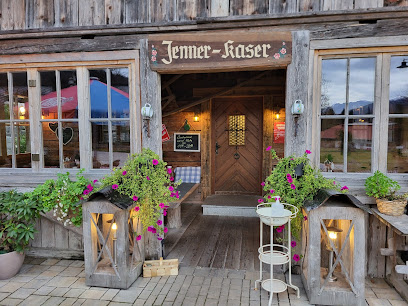
Waldhauser Bräu
Savor traditional Bavarian dishes in Schönau am Königssee at Waldhauser Bräu - where authentic flavors meet stunning alpine views.
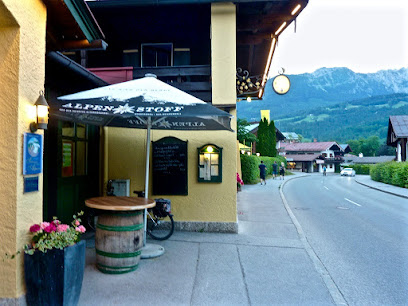
L´Osteria al Parco
Experience authentic Italian cuisine at L'Osteria al Parco in Berchtesgaden—where every meal feels like a trip to Italy.
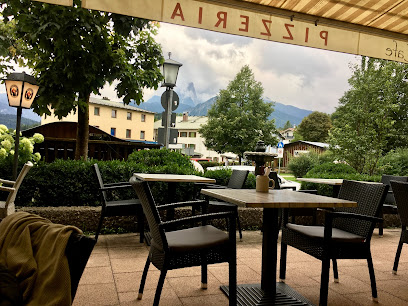
Berggasthof-Pension Oberkälberstein Springl
Discover Bavarian charm at Berggasthof-Pension Oberkälberstein – where cozy accommodations meet delicious traditional cuisine.

Gasthaus Laroswacht
Experience authentic Bavarian cuisine amidst breathtaking views at Gasthaus Laroswacht in Berchtesgaden.
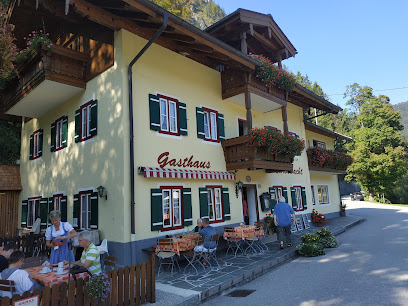
Berggasthof Zipfhäusl & Pension
Discover Bavarian delights at Berggasthof Zipfhäusl & Pension—where tradition meets stunning alpine scenery.
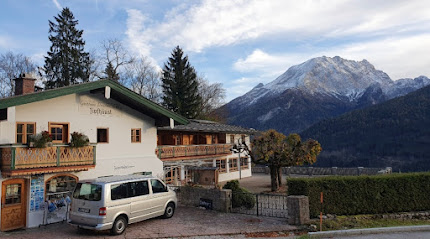
Gasthof Vorderbrand
Discover authentic Bavarian flavors at Gasthof Vorderbrand in Schönau am Königssee – where tradition meets stunning alpine views.
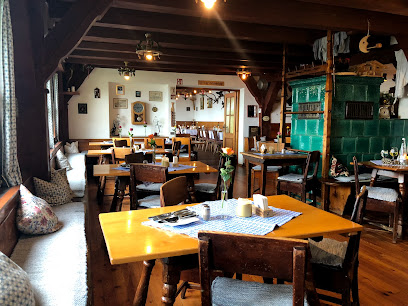
Gasthaus Sonneck
Experience authentic Bavarian cuisine at Gasthaus Sonneck in Berchtesgaden - where mountain views meet delightful dining.
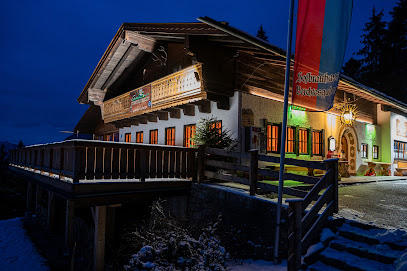
Bauchgfui
Experience the vibrant flavors of local and international cuisine at Bauchgfui in Berchtesgaden - where every dish tells a story.
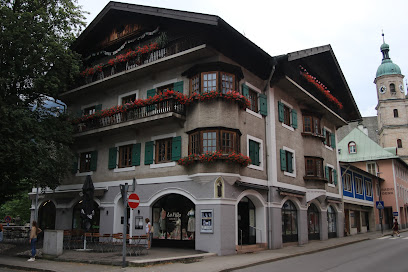
Holzkäfer
Discover authentic Bavarian cuisine at Holzkäfer, a charming mountain cabin in Berchtesgaden offering breathtaking views and hearty meals.
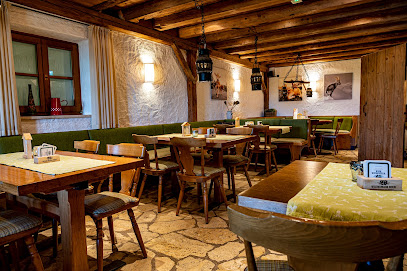
Berggasthof Obersalzberg
Discover Berggasthof Obersalzberg: A delightful restaurant in Berchtesgaden offering traditional Bavarian cuisine with stunning mountain views.
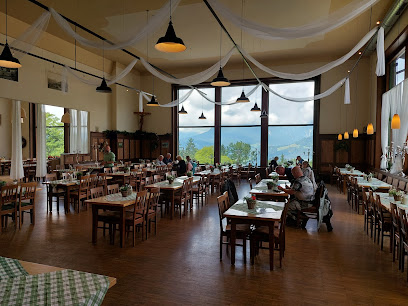
Markets, malls and hidden boutiques
House of Mountains
Discover the House of Mountains: Your gateway to the breathtaking Bavarian Alps, offering insights into nature and adventure.
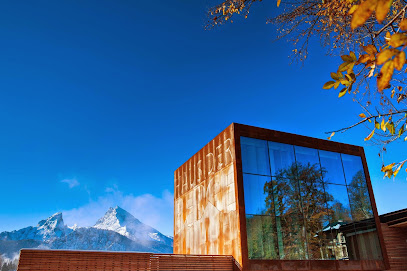
Sport Renoth Berchtesgaden
Explore the best of Berchtesgaden's outdoor sports at Sport Renoth, your one-stop shop for skiing, running, and adventure gear.
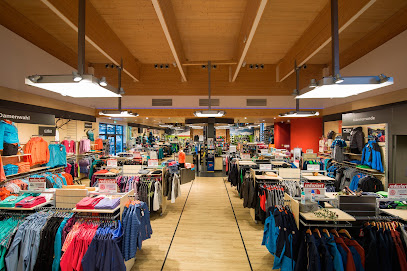
Franz Stangassinger
Explore Franz Stangassinger in Berchtesgaden, a top destination for authentic Bavarian leather goods and craftsmanship.
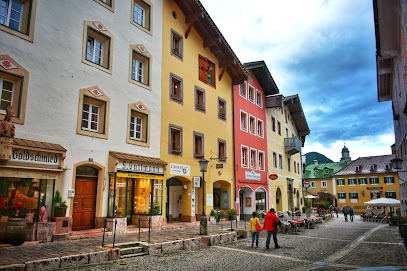
Lederhosen Aigner
Discover traditional Bavarian attire at Lederhosen Aigner in Berchtesgaden – where craftsmanship meets culture in a charming shopping experience.
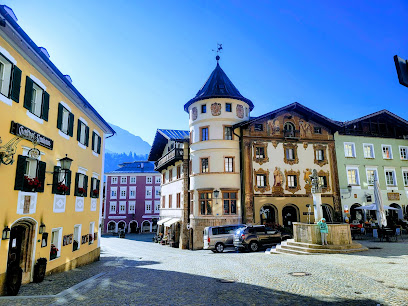
Angerer - Das Schuhhaus
Discover exquisite footwear and accessories at Angerer - Das Schuhhaus in Berchtesgaden, where quality meets style for every occasion.
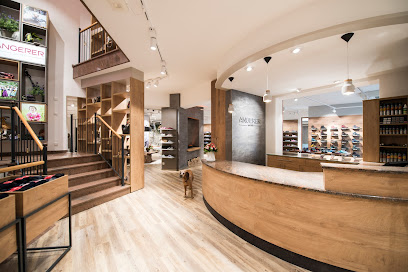
Müller
Explore Müller in Berchtesgaden for a diverse range of products, from health essentials to beautiful souvenirs, all in one convenient location.
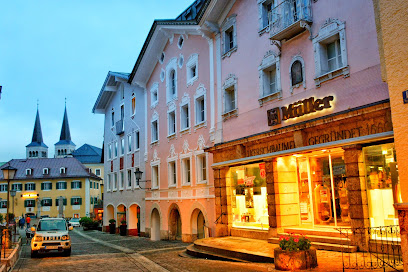
Jack Wolfskin Store
Discover top-tier outdoor gear and clothing for all ages at Jack Wolfskin Store in Berchtesgaden, where adventure begins.
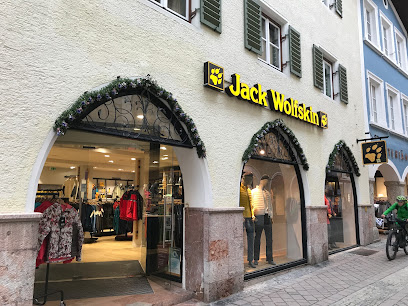
Modehaus Unterländer e. K.
Discover the latest trends and timeless styles at Modehaus Unterländer, Berchtesgaden's premier fashion destination for all your clothing needs.
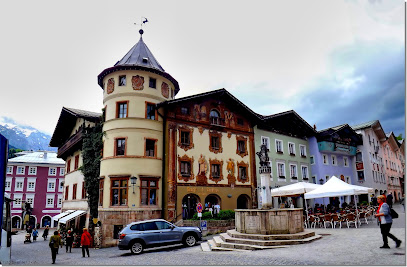
Seiberl
Discover the essence of Bavarian fashion at Seiberl, a charming clothing store in Berchtesgaden, offering unique apparel and souvenirs.
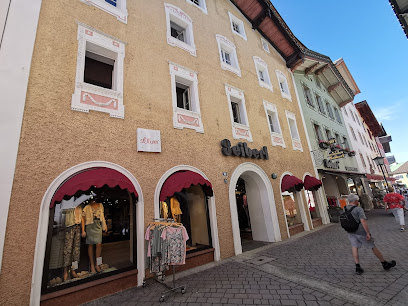
Berchtesgadener Handwerkskunst
Explore the exquisite handmade needlework and unique crafts at Berchtesgadener Handwerkskunst in Berchtesgaden.
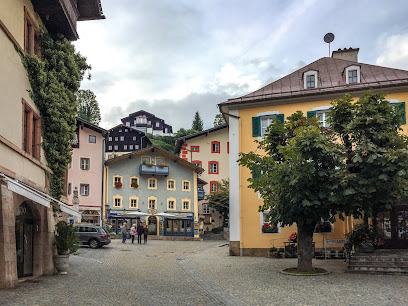
Ankleidezimmer Berchtesgaden
Discover unique pre-loved fashion at Ankleidezimmer Berchtesgaden, a charming clothing store that promotes sustainable shopping in a picturesque setting.

Richie's Vintage & Secondhand Shop
Explore unique vintage clothing and sustainable fashion at Richie's Vintage & Secondhand Shop in Berchtesgaden, a treasure trove for style enthusiasts.
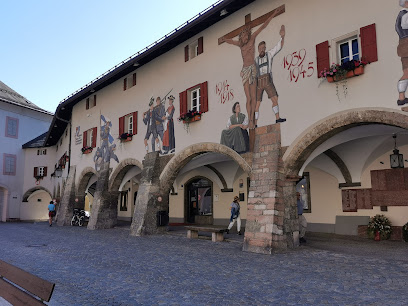
Höhenrausch Alpine Wear
Explore the stunning collection of high-quality sportswear at Höhenrausch Alpine Wear in Berchtesgaden, perfect for your alpine adventures.
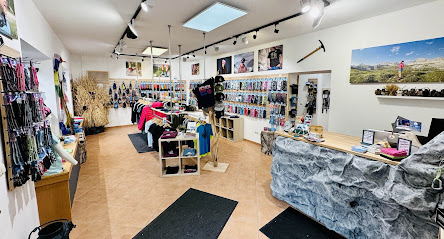
Teamwörk's Shop am Schlossplatz
Explore Teamwörk's Shop am Schlossplatz in Berchtesgaden for unique gifts, local crafts, and a taste of Bavarian culture.
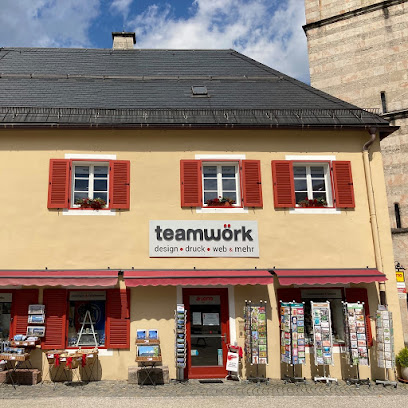
Eagle’s Nest Souvenirs
Discover unique Bavarian souvenirs at Eagle’s Nest Souvenirs, the perfect stop for memorable keepsakes in Berchtesgaden.
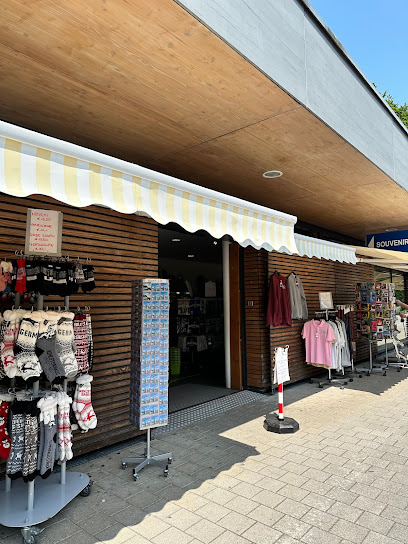
Essential bars & hidden hideouts
Gasthof Neuhaus
Discover authentic Bavarian flavors at Gasthof Neuhaus, where traditional cuisine meets stunning alpine beauty in Berchtesgaden.
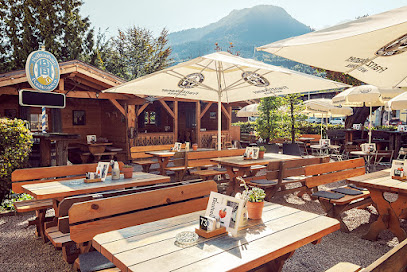
Goldener Bär
Experience authentic Bavarian cuisine in the heart of Berchtesgaden at Goldener Bär, where delicious meals and warm hospitality await.
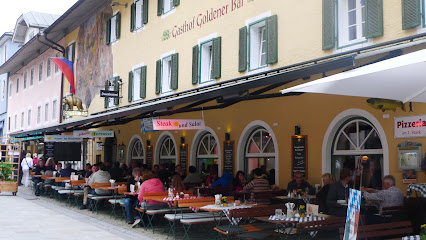
Bräustüberl
Experience authentic Bavarian cuisine at Bräüstüberl in Berchtesgaden, where tradition meets taste in a charming atmosphere.
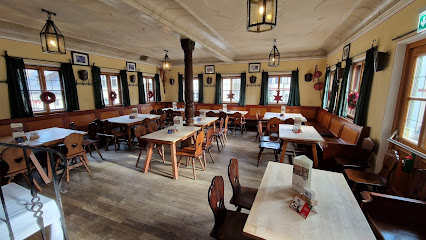
Bauchgfui
Discover a culinary gem in Berchtesgaden at Bauchgfui, serving fresh and innovative dishes for every palate.
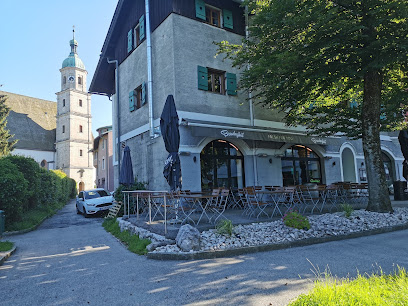
Holzkäfer
Discover the authentic flavors of Bavaria in a stunning mountain setting at Holzkäfer, Berchtesgaden's beloved restaurant and cabin retreat.
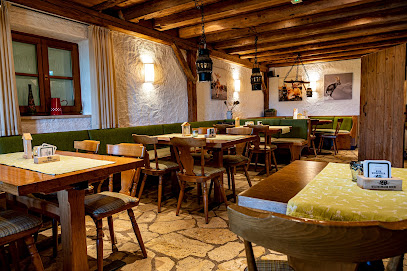
KS Alps Bowling GmbH
Enjoy the unique combination of bowling and Bavarian cuisine at KS Alps Bowling GmbH in Berchtesgaden, a perfect spot for family fun and dining.
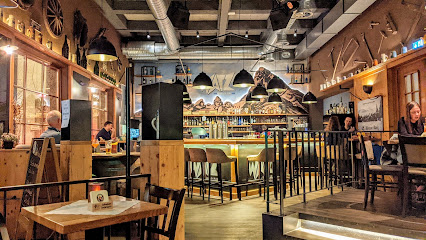
Lederstub‘n
Discover the flavors of Bavaria at Lederstub’n, a beloved restaurant in Berchtesgaden offering traditional German cuisine in a cozy setting.
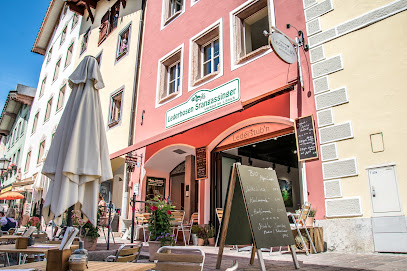
Soundcafe
Discover the lively atmosphere of Soundcafe in Berchtesgaden, a perfect bar for cocktails, coffee, and unforgettable experiences.
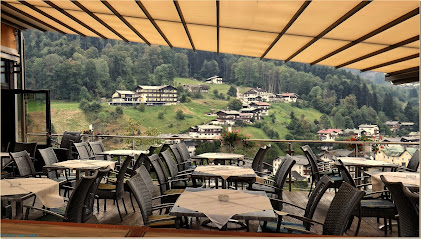
Biergarten am Königssee
Experience the heart of Bavarian culture at Biergarten am Königssee, where stunning views meet delicious local brews and traditional cuisine.
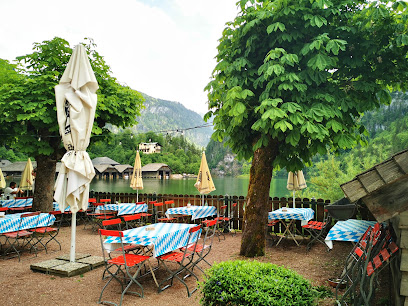
Charivari Berchtesgaden
Discover Bavarian flavors at Charivari Berchtesgaden, a vibrant gastropub and bar nestled in the stunning Bavarian Alps.
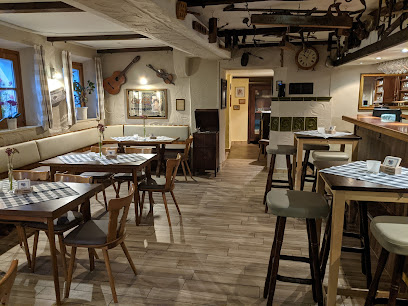
Zum Kleinen Kuckuck
Experience the best of Bavarian cuisine at Zum Kleinen Kuckuck, a top-rated gastropub in Berchtesgaden, offering delicious dishes and a cozy atmosphere.
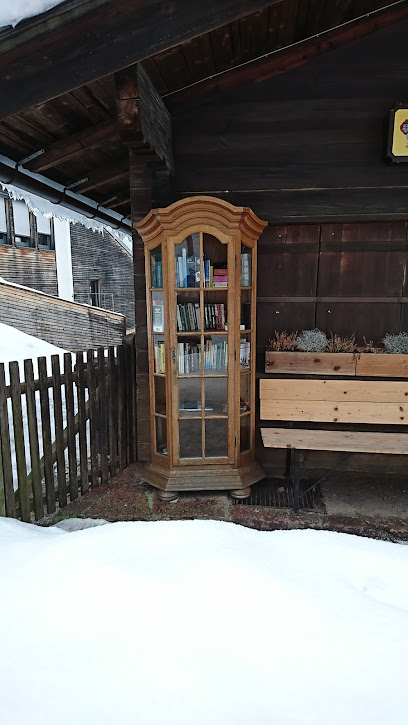
Restaurant Johann Grill
Experience the finest Bavarian cuisine with breathtaking views at Restaurant Johann Grill in Berchtesgaden.
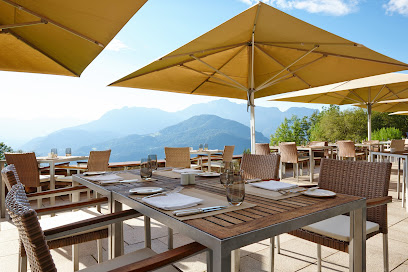
Ratsstubn
Experience the authentic Bavarian pub culture at Ratsstubn in Berchtesgaden, featuring local beers and a serene beer garden in a picturesque setting.
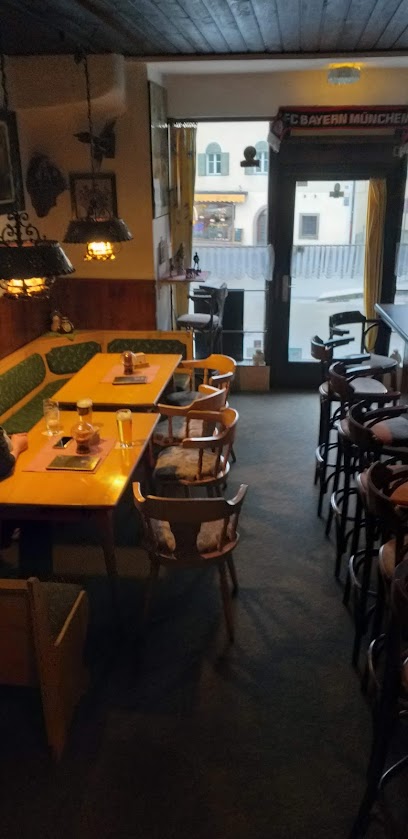
Einkehr mit Getränke
Discover the charm of Einkehr mit Getränke, a cozy bar in Schönau am Königssee offering delightful drinks and a warm Bavarian atmosphere.
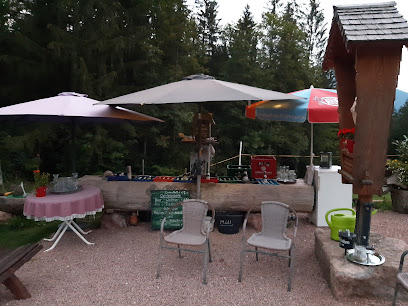
Local Phrases about Eagle's Nest
-
- HelloHallo
[hah-loh] - GoodbyeAuf Wiedersehen
[owf vee-duhr-zay-en] - YesJa
[yah] - NoNein
[nine] - Please/You're welcomeBitte
[bit-teh] - Thank youDanke
[dahn-keh] - Excuse me/SorryEntschuldigung
[ent-shool-di-goong] - How are you?Wie geht es Ihnen?
[vee geht es een-en] - Fine. And you?Gut. Und dir?
[goot oont deer] - Do you speak English?Sprechen Sie Englisch?
[shpre-khen zee eng-lish] - I don't understandIch verstehe nicht
[ikh fer-shtay-eh nikht]
- HelloHallo
-
- I'd like to see the menu, pleaseIch hätte gerne die Speisekarte, bitte
[ikh hah-teh gehr-neh dee shpahy-zuh-kahr-teh, bit-teh] - I don't eat meatIch esse kein Fleisch
[ikh es-se kine flysh] - Cheers!Prost!
[prohst] - I would like to pay, pleaseIch möchte bitte zahlen
[ikh merkh-teh bit-teh tsah-len]
- I'd like to see the menu, pleaseIch hätte gerne die Speisekarte, bitte
-
- Help!Hilfe!
[hil-feh] - Go away!Gehen Sie weg!
[gey-en zee vehg] - Call the Police!Rufen Sie die Polizei!
[roo-fen zee dee poh-lee-tsay] - Call a doctor!Rufen Sie einen Arzt!
[roo-fen zee iyn-en ahrts] - I'm lostIch habe mich verirrt
[ikh hah-beh mikh fehr-eert] - I'm illIch bin krank
[ikh been krahngk]
- Help!Hilfe!
-
- I'd like to buy...Ich möchte ... kaufen
[ikh merkh-teh ... kow-fen] - I'm just lookingIch schaue nur
[ikh shou-eh noor] - How much is it?Wie viel kostet es?
[vee feel koh-stet es] - That's too expensiveDas ist zu teuer
[dahs ist tsoo toy-er] - Can you lower the price?Können Sie den Preis senken?
[keu-nen zee den prise zehn-ken]
- I'd like to buy...Ich möchte ... kaufen
-
- What time is it?Wie spät ist es?
[vee shpeht ist es] - It's one o'clockEs ist ein Uhr
[es ist iyn oor] - Half past (10)Halb elf
[halb elf] - MorningMorgen
[mor-gen] - AfternoonNachmittag
[nahkh-mit-tahk] - EveningAbend
[ah-bent] - YesterdayGestern
[ges-tern] - TodayHeute
[hoy-teh] - TomorrowMorgen
[mor-gen] - 1Eins
[eyns] - 2Zwei
[tsvay] - 3Drei
[dry] - 4Vier
[feer] - 5Fünf
[fuhnf] - 6Sechs
[zeks] - 7Sieben
[zee-ben] - 8Acht
[ahkht] - 9Neun
[noyn] - 10Zehn
[tsayn]
- What time is it?Wie spät ist es?
-
- Where's a/the...?Wo ist ein/der...?
[vo ist iyn/dehr] - What's the address?Was ist die Adresse?
[vas ist dee ah-dreh-seh] - Can you show me (on the map)?Können Sie mir das zeigen (auf der Karte)?
[keu-nen zee meer dahs tsay-gen (ouf dehr kahr-teh)] - When's the next (bus)?Wann kommt der nächste (Bus)?
[vahn kommt dehr nekhs-teh (boos)] - A ticket (to ....)Eine Fahrkarte (nach ...)
[iyn-eh fahr-kahr-teh (nahkh ...)]
- Where's a/the...?Wo ist ein/der...?
History of Eagle's Nest
-
Eagle's Nest, known as Kehlsteinhaus in German, was originally constructed in 1938 as a gift for Adolf Hitler's 50th birthday from the Nazi Party. Perched atop the Kehlstein Mountain, it was intended to serve as a retreat and a place for diplomatic meetings. The structure, built under the direction of Martin Bormann, showcases extraordinary engineering feats, including a tunnel bored 124 meters through the mountain and an elevator shaft rising 124 meters vertically.
-
During World War II, Eagle's Nest was seldom used by Hitler himself, who reportedly had a fear of heights. However, it became a symbol of Nazi power and an important part of the Berghof complex, which included Hitler's primary residence. The area was heavily fortified and served as a strategic location for the Nazis. It survived the war relatively unscathed and was captured by Allied forces in May 1945.
-
After World War II, Eagle's Nest faced potential destruction due to its association with the Nazi regime. However, it was spared and eventually handed over to the state of Bavaria. In the 1950s, it was transformed into a mountain inn and restaurant, open to the public. This period marked the beginning of its transition from a symbol of tyranny to a tourist attraction.
-
Today, Eagle's Nest is a popular tourist destination, attracting visitors from around the world. It offers panoramic views of the surrounding Alps and serves as a poignant historical site. The restaurant inside provides a unique dining experience with a historical backdrop, and guided tours offer in-depth insights into the site's past. The blend of natural beauty and historical significance makes Eagle's Nest a unique and compelling destination.
-
Eagle's Nest is a testament to the architectural and engineering prowess of its time. The mountain road leading to the site, the tunnel, and the brass-lined elevator are all considered extraordinary achievements. The building itself is constructed from granite and features a terrace that offers breathtaking views. Despite its dark history, the craftsmanship and design of Eagle's Nest continue to impress visitors.
-
Eagle's Nest has left a lasting impact on popular culture and history. It has been featured in numerous documentaries, books, and films, often as a symbol of Nazi Germany. Its transformation into a tourist site serves as a reminder of the past while promoting education and reflection. The site's cultural significance extends beyond Germany, contributing to global historical discourse.
Eagle's Nest Essentials
-
Eagle's Nest, also known as Kehlsteinhaus, is located in the Bavarian Alps near Berchtesgaden, Germany. The nearest major city is Munich, which is approximately 150 kilometers away. From Munich, you can take a train to Berchtesgaden, which takes around 2.5 hours. From Berchtesgaden, buses or organized tours can take you to the Eagle's Nest Documentation Center. To reach the actual Eagle's Nest, you will need to take a special mountain bus from the Documentation Center, as private vehicles are not allowed on the steep mountain road.
-
Public transportation is efficient and reliable. The Deutsche Bahn (German Rail) operates frequent trains to Berchtesgaden from major cities. Local buses connect Berchtesgaden with nearby attractions. Special mountain buses operate from the Eagle's Nest Documentation Center to the Eagle's Nest itself. Taxis are available but can be expensive. Renting a car provides flexibility, especially if you plan to explore the wider Berchtesgaden area.
-
The official currency in Germany is the Euro (EUR). Credit cards are widely accepted, especially in hotels, restaurants, and shops. However, it is advisable to carry some cash for small purchases or in rural areas. ATMs are readily available in Berchtesgaden. It is a good idea to inform your bank of your travel plans to avoid any issues with card transactions.
-
Eagle's Nest and the surrounding areas are generally very safe for tourists. Standard safety precautions should be taken, such as keeping an eye on your belongings and avoiding isolated areas after dark. Always stay on marked paths and trails, especially when hiking in the mountains. There are no specific high-crime areas targeting tourists, but it is always best to stay vigilant.
-
In case of emergency, dial 112 for immediate assistance. This number connects you to emergency services including police, fire, and medical help. There are medical facilities in Berchtesgaden, and most staff speak English. It is recommended to have travel insurance that covers medical emergencies and other unexpected events. Pharmacies (Apotheke) are available for minor health issues and over-the-counter medications.
-
Fashion: Do dress in layers, as weather can change quickly in the mountains. Comfortable walking shoes are essential. Avoid overly casual or revealing clothing in more formal settings. Religion: Respect local customs, especially when visiting churches or religious sites. Public Transport: Be punctual, as trains and buses run on strict schedules. Offer your seat to elderly passengers. Eating & Drinking: Try local Bavarian dishes and beer. Tipping is appreciated but not mandatory; rounding up the bill is common. Greetings: A firm handshake is the standard greeting. When meeting someone for the first time, a polite 'Guten Tag' (Good Day) is appropriate.
-
To experience Eagle's Nest like a local, consider visiting the Documentation Center to learn about the site's historical context. Take time to explore the surrounding Berchtesgaden National Park, which offers stunning natural beauty and hiking trails. Try local specialties such as Weisswurst (white sausage) and pretzels. Engage with locals at traditional beer gardens and markets. Guided tours can offer deeper insights into the area's history and culture.
-
Eagle's Nest is generally open from mid-May to October, depending on weather conditions. The best time to visit is during the summer months (June to September) when the weather is pleasant, and the mountain views are clear. Early morning visits can help you avoid crowds. Winter visits are not possible as the roads are closed due to snow.
Nearby Cities to Eagle's Nest
-
Things To Do in Zell am See
-
Things To Do in Hallstatt
-
Things To Do in Kitzbühel
-
Things To Do in Bad Gastein
-
Things To Do in Linz
-
Things To Do in Munich
-
Things To Do in Innsbruck
-
Things To Do in Kranjska Gora
-
Things To Do in Klagenfurt
-
Things To Do in Bled
-
Things To Do in Český Krumlov
-
Things To Do in Bohinj
-
Things To Do in České Budějovice
-
Things To Do in Škofja Loka
-
Things To Do in Nova Gorica










